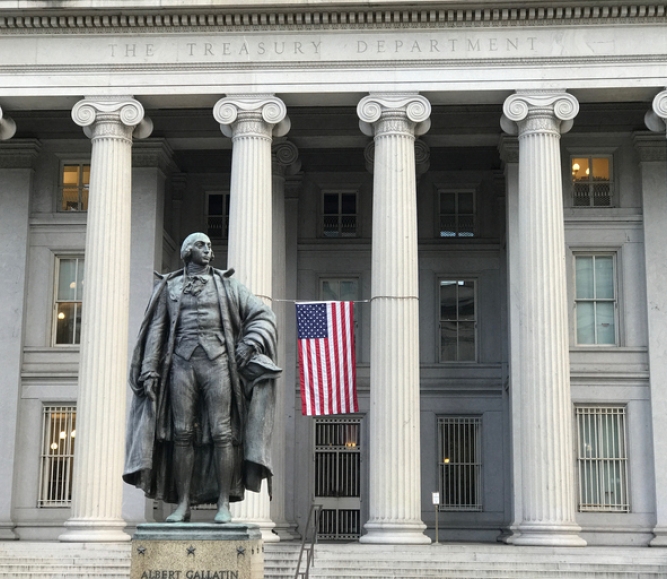Countdown to the ARPA SLFRF obligation deadline: What counties need to know before December 31, 2024
Author

Eryn Hurley
Upcoming Events
Related News

With the December 31, 2024 deadline for obligating American Rescue Plan Act (ARPA) State and Local Fiscal Recovery Funds (SLFRF) quickly approaching, counties nationwide are assessing how best to allocate these critical resources. Passed in 2021, the ARPA SLFRF provided $65.1 billion in direct, flexible aid to counties across the United States, offering a unique opportunity to respond to immediate pandemic-related needs, support long-term recovery, and strengthen community resilience.
The deadline means counties must not only allocate these funds but also have contractual commitments in place before the year ends. Here, we break down what this obligation entails, why it matters and how counties can ensure they meet this significant milestone.
Understanding the obligation deadline and what it means for counties.
- Under ARPA, the SLFRF obligation deadline is the date by which counties must have invested, encumbered, or contracted their designated funds.
- While counties have until December 31, 2026, to complete spending, any funds uncommitted by December 31, 2024, must be given back to Treasury, reducing a county’s overall ARPA allocation amount and potential impact on local communities.
The December 2024 deadline is not just a guideline—it’s a federal requirement.
- This hard deadline underscores the importance of strategic, timely planning.
- Counties need to move decisively to allocate these funds while ensuring they align with community needs and meet all federal compliance requirements.
What is an obligation?
- An order placed for property and services and entering into contracts, subawards and similar transactions that require payment
- A requirement under federal law or regulation or provision of the SLFRF award terms and conditions that a county becomes subject to as a result of receiving/expending SLFRF dollars
- An interagency agreement meeting certain conditions to constitute a transaction requiring payment similar to a contract or subaward
- Personnel costs for eligible personnel whose salary may be paid by SLFRF dollars through December 31, 2026, for any position that existed and filled BY December 31, 2024
What is not an obligation?
- Adopted budget or budget amendment
- Appropriation of SLFRF funds
- Executive order
- Resolution
- Written or oral intention to enter a contract
- Grant of legal authority to enter a contract
- Claiming funds under the revenue loss category
- Moving SLFRF dollars to a general fund as revenue loss but not further establishing an obligation with those funds by 12/31/24
Priorities for ARPA Funding: Investing in Long-Term Community Benefits
SLFRF dollars give counties a chance to address challenges that have long impacted communities – both short-term and long-term. Per Treasury’s guidance, counties can invest in five primary categories:
- Public Health: Funds can be used to combat COVID-19 and address behavioral health, including mental health and substance use programs.
- Economic Recovery: Counties can support local businesses, enhance workforce training, and stabilize households, boosting resilience in the local economy.
- Premium Pay for Essential Workers: Counties can compensate essential workers who served their communities during the pandemic.
- Revenue Replacement: SLFRF allows for the recovery of lost public sector revenue, enabling counties to maintain public services and avoid budget cuts.
- Infrastructure: Counties can invest in water, sewer, and broadband infrastructure, providing essential services and closing critical gaps in underserved areas.
Practical Tips for Meeting the December 2024 Obligation Deadline
Counties face multiple challenges in meeting this deadline, from navigating federal compliance to identifying local priorities. Here are some practical tips to help counties make the most of their ARPA funds:
- Accelerate Planning and Community Engagement: Counties should already have a clear vision of how to use these funds. Conducting public outreach, consulting stakeholders, and updating local leaders on progress can all ensure the investments reflect community needs.
- Prioritize Compliance and Oversight: Establishing clear documentation and monitoring systems is essential. Non-compliance can lead to recoupment, so counties must adhere to Treasury guidelines and ensure all expenditures are well-documented.
- Streamline Procurement and Contracting: Delays in procurement and contracting can stall projects. Counties should streamline these processes, ensuring that contracts are signed and obligations are in place by December 2024.
- Leverage Partnerships: Collaboration with local organizations, nonprofits, and regional governments can help maximize the reach of these funds. Pooling resources, especially for large infrastructure projects, can ensure timely project initiation and compliance.
- Use NACo Resources: NACo has developed numerous resources, including toolkits, webinars, and guidance documents, to assist counties in navigating ARPA’s regulatory landscape. Counties should leverage these tools to ensure their projects meet Treasury standards and have the desired impact.
Moving Forward: Ensuring a Lasting Impact
With the SLFRF obligation deadline looming, counties are working to finalize investments that can meaningfully improve lives across the country. By prioritizing thoughtful, strategic projects, counties can ensure ARPA funds contribute to lasting positive change in local communities.
NACo remains a committed partner in this effort. By offering guidance, advocacy, and practical tools, we’re here to help counties make the most of their ARPA funding and build stronger, healthier communities. As the December 31, 2024, deadline approaches, counties are urged to act quickly and strategically—seizing this moment to create a more resilient future.
Webinar
Countdown to the ARPA SLFRF Obligation Deadline: What Local Governments Need to Know Before December 31, 2024
With the December 31, 2024 deadline for obligating American Rescue Plan Act (ARPA) State and Local Fiscal Recovery Funds (SLFRF) quickly approaching, local governments nationwide are assessing how best to allocate these critical resources.

Related News

What Counties Need to Know: ARPA SLFRF Non-Compliance Next Steps
Since in March 2021, the American Rescue Plan Act (ARPA) authorized the $350 billion State and Local Coronavirus Fiscal Recovery Fund (SLFRF), which provided $65.1 billion in direct, flexible aid to every county, parish and borough in America. Now that we are four years into the program’s implementation, compliance with reporting requirements is of utmost importance.

What Counties Need to Know: ARPA SLFRF Reporting Deadline
As counties continue to implement projects under the American Rescue Plan Act’s (ARPA) State and Local Fiscal Recovery Funds (SLFRF) program, accurate and timely reporting remains critical. To support counties in preparing their 2025 Annual or Q1 Project and Expenditure (P&E) Reports – due April 30, 2025 – NACo has developed the below frequently asked questions (FAQs) guide.

County Countdown – April 7, 2025
Every other week, NACo's County Countdown reviews top federal policy advocacy items with an eye towards counties and the intergovernmental partnership. This week features a budget reconciliation update, HHS restructuring and more.